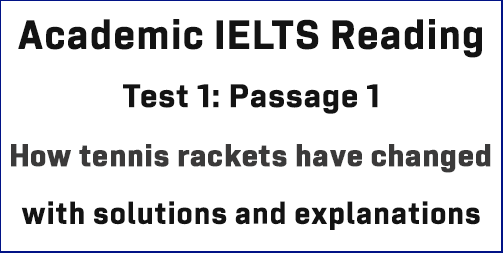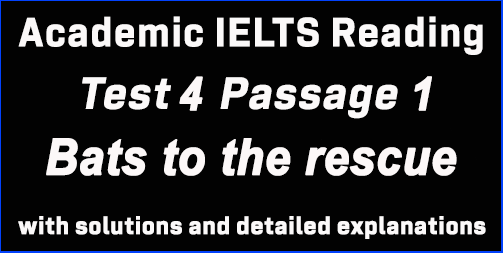Academic IELTS Reading: Test 2 Reading passage 3; How to make wise decisions; with best solutions and detailed explanations
This Academic IELTS Reading post focuses on solutions to IELTS Reading Test 2 Reading Passage 3 titled ‘How to make wise decisions’. This is a targeted post for IELTS candidates who have big problems finding out and understanding Reading Answers in the AC module. This post can guide you to the best to understand every Reading answer without much trouble. Finding out IELTS Reading answers is a steady process, and this post will assist you in this respect.
Academic IELTS Reading Module
Reading Passage 3: Questions 27-40
The headline of the passage: How to make wise decisions
Questions 27-30: Multiple-choice questions
[This type of question asks you to choose a suitable answer from the options using the knowledge you gained from the passage. Generally, this question is found as the last question so you should not worry much about it. Finding all the answers to previous questions gives you a good idea about the title.]
Question no. 27: What point does the writer make in the first paragraph?
Keywords for the question: point, writer make, first paragraph,
In the first paragraph, take a close look at line no. 3, “ . .. .. it isn’t an exceptional trait possessed by a small handful of bearded philosophers after all – .. .. .. .”
Here, the lines suggest that our basic assumption that ‘wisdom is an exceptional trait possessed by a small handful of bearded philosophers’ may not be correct.
So, the answer is: B (A basic assumption about wisdom may be wrong.)
Question no. 28: What does Igor Grossmann suggest about the ability to make wise decisions?
Keywords for the question: Igor Grossmann, suggest, ability, make wise decisions,
The first lines of the second paragraph have the answer to this question. Here, the author of the text writes, “‘It appears that experiential, situational and cultural factors are even more powerful in shaping wisdom than previously imagined,’ says Associate Professor Igor Grossmann of the University of Waterloo in Ontario, Canada. .. .. .”
Here, experiential, situational and cultural factors are even more powerful = The importance of certain influences, more powerful . . .. than previously imagined = underestimated,
So, the answer is: C (The importance of certain influences on it was underestimated.)
Question no. 29: According to the third paragraph, Grossmann claims that the level of wisdom an individual shows –
Keywords for the question: third paragraph, Grossmann, claims, level of wisdom, an individual shows,
The answer is found in the last lines of paragraph no. 3, “ . . .. .. Some situations are likely to promote wisdom than others.”
Here, the lines suggest that the level of wisdom that an individual shows can be different in different situations, or, circumstances.
So, the answer is: B (will be different in different circumstances.)
Question no. 30: What is described in the fifth paragraph?
Keywords for the question: described, fifth paragraph,
The answer is in paragraph no. 5, in lines 3-7, “ . . . .. Research suggest that when adopting a first-person viewpoint we focus on ‘the focal features of the environment’ and when we adopt a third-person, ‘observer’ viewpoint we reason more broadly and focus more on interpersonal and moral ideals such as justice and impartiality. Looking at problems from this more expansive viewpoint appears to foster cognitive processes related to wise decisions.”
Here, third-person, ‘observer’ viewpoint, or, this more expansive viewpoint = a recommended strategy, appears to foster cognitive processes related to wise decisions = can help people to reason wisely,
So, the answer is: D (a recommended strategy that can help people to reason wisely.)
Questions 31-35: Completing summary with a list of words
[In this type of question, candidates are asked to complete a summary with a list of words taken from the passage. Candidates must write the correct letter (not the words) as the answers. Keywords and synonyms are important to find answers correctly. Generally, this type of question maintains a sequence. Find the keywords in the passage and you are most likely to find the answers.]
Title of the summary: The characteristics of wise reasoning
Question no. 31: Igor Grossmann and colleagues have established four characteristics which enable us to make wise decisions. It is important to have a certain degree of _________ regarding the extent of our knowledge, . .. . . .. .
Keywords for the question: Igor Grossmann and colleagues, established, four characteristics, enable us, make wise decisions, important to have, certain degree of, extent of knowledge,
Take a look at paragraph no. 4. Here, the writer of the text says in the beginning, “Coming up with a definition of wisdom is challenging, but Grossmann and his colleagues have identified four key characteristics as part of a framework of wise reasoning. One is intellectual humility or recognition of the limits of our own knowledge, …. . .. .”
Here, wise reasoning = wise decisions, humility = modesty,
So, the answer is: D (modesty)
Question no. 32: .. . . .. and to take into account __________ which may not be the same as our own.
Keywords for the question: take into account, may not be, the same, as our own,
In paragraph no. 4, lines 3-4 say “ . .. and another is appreciation of perspectives wider than the issue at hand.”
Here, appreciation = to take into account, perspectives = opinions, wider than the issue at hand = may not be the same as our own,
So, the answer is: A (opinions)
Question no. 33: We should also be able to take a broad _________ of any situation.
Keywords for the question: should also be able, take a broad, any situation,
The final lines of paragraph no. 4 say, “ . . .. . Sensitivity to the possibility of change in social relations is also key, along with compromise or integration of different attitudes and beliefs.”
Here, compromise or integration = we should also be able to take, different = broad, attitudes and beliefs = view,
So, the answer is: C (view)
Question no. 34: Grossmann also believes that it is better to regard scenarios with ___________.
Keywords for the question: Grossmann, believes, better, regard scenarios,
In paragraph no. 5, the answer is at the very beginning in lines 1-3, “Grossmann and his colleagues have also found that one of the most reliable ways to support wisdom in our own day-to-day decisions is to look at scenarios from a third-party perspective, as though giving advice to a friend. .. ..”
Here, look at scenarios = regard scenarios, third-party perspective = objectivity,
So, the answer is: F (objectivity)
Question no. 35: By avoiding the first-person perspective, we focus more on ________ and on other moral ideals, which in turn leads to wiser decision-making.
Keywords for the question: by avoiding, first-person perspective, focus more on, other moral ideals, in turn, leads to, wiser decision-making,
The answer lies in lines 3-6 of paragraph no. 5, “ . . .. . Research suggests that when adopting a first-person viewpoint we focus on ‘the focal features of the environment’ and when we adopt a third-person, ‘observer’ viewpoint we reason more broadly and focus more on interpersonal and moral ideals such as justice and impartiality. .. .. …”
Here, when we adopt a third-person, ‘observer’ viewpoint = By avoiding the first-person perspective, justice and impartiality = fairness,
So, the answer is: G (fairness)
Questions 36-40: TRUE, FALSE, NOT GIVEN
[In this type of question, candidates are asked to find out whether:
The statement in the question agrees with the information in the passage – TRUE
The statement in the question contradicts the information in the passage – FALSE
If there is no information on this – NOT GIVEN
For this type of question, you can divide each statement into three independent pieces and make your way through with the answer.]
Question no. 36: Students participating in the job prospects experiment could choose one of two perspectives to take.
Keywords for the question: students, participating, job prospects experiment, could choose, one of two perspectives, to take,
In lines 1-4 of paragraph no. 7, the writer says, “For example, in one experiment that took place during the peak of a recent economic recession, graduating college seniors were asked to reflect on their job prospects. The students were instructed to imagine their career either ‘as if you were a distant observer’ or ‘before your own eyes as if you were right there’. … … ..”
Here, graduating college seniors = students, The students were instructed to imagine = the students could NOT choose,
So, the answer is: FALSE
Question no. 37: Participants in the couples experiment were aware that they were taking part in a study about wise reasoning.
Keywords for the question: Participants in the Santa Cruz study, more accurate, identifying, laughs of friends, than, strangers,
Paragraph no. 8 talks about the couples’ experiment. However, there is no mention of whether the participants were aware or not that they were taking part in a study about wise reasoning.
So, the answer is: NOT GIVEN
Question no. 38: In the couples experiments, the length of the couples’ relationships had an impact on the results.
Keywords for the question: couples experiments, length, couples’ relationships, had an impact, on the results,
Again, we do not find any mention of impact due to the length of the couples’ relationships.
So, the answer is: NOT GIVEN
Question no. 39: In both experiments, the participants who looked at the situation from a more detached viewpoint tended to make wiser decisions.
Keywords for the question: both experiments, participants, looked to the situation, more detached viewpoint, tended to, make wiser decisions,
The answer lies in the final lines of paragraph no. 7 and 8.
First, in paragraph no. 7, lines 4-5 say, “ .. . .. Participants in the group assigned to the ‘distant observer’ role displayed more wisdom-related reasoning . …. .”
Here, ‘distant observer’ = more detached viewpoint,
Then, in lines 4-5 of paragraph no. 8, the author says, “ . .. . Couples in the ‘other’s eyes’ condition were significantly more likely to rely on wise reasoning . .. . .. .”
Here, ‘other’s eyes’ condition = more detached viewpoint,
So, the answer is: TRUE
Question no. 40: Grossmann believes that a person’s wisdom is determined by their intelligence to only a very limited extent.
Keywords for the question: Grossmann, believes, a person’s wisdom, determined by, intelligence, only a very limited extent,
In the final paragraph, the author mentions in lines 1-3, “We might associate wisdom with intelligence or particular personality traits, but research shows only a small positive relationship between wise thinking and crystallized intelligence and the personality traits of openness and agreeableness. . .. ..”
Here, small positive relationship between wise thinking and crystallized intelligence = a person’s wisdom is determined by their intelligence to only a very limited extent,
So, the answer is: TRUE
Click here for solutions to passage 1: The White Horse of Uffington
Click here for solutions to passage 2: I Contain Multitudes




Hi thanks in million for your efforts as you provide solutions for complicated reading passages but may I know where I can check cambridge book 1 solutions for all three passages
36 incorrect question and answer as well
I am always confused on True, false and complete the given sentence .plz reply me how to tackle the problems